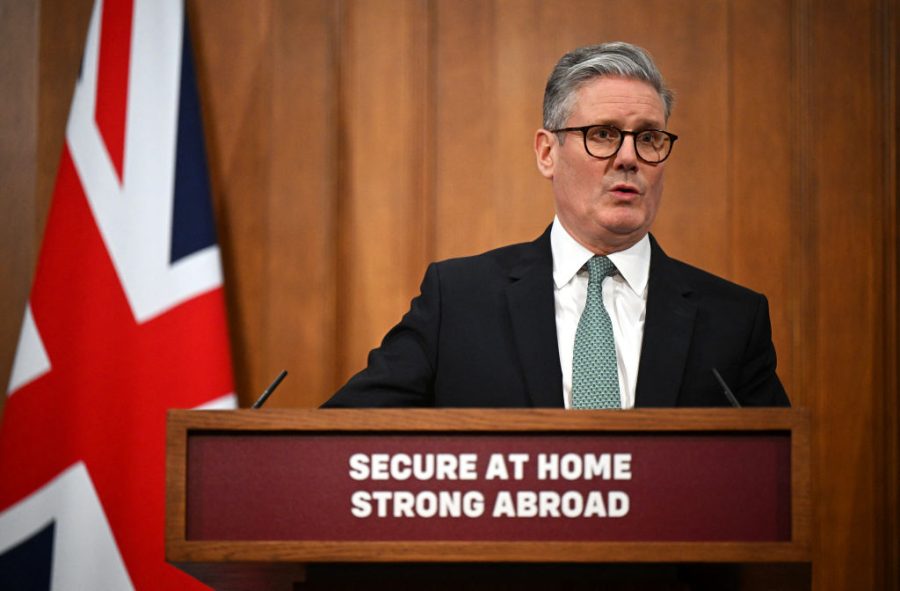It was inevitable that the announced cut to Britain’s international aid budget would cause a stir. The curtailment earlier this month of the USAID programme provoked outrage among progressive voices worldwide, despite the fact that scheme funded some dubious causes. Why, then, would our compassionate classes react any different?
Yesterday, Prime Minister Keir Starmer explained that his plan to increase defence spending would be partly balanced by a reduction in the aid budget, from 0.5 per cent to 0.3 per cent of GDP. Some of his Labour colleagues aren’t happy. Sarah Champion, the Labour chair of the international development committee, reacted: ‘Conflict is often an outcome of desperation, climate and insecurity; our finances should be spent on preventing this, not the deadly consequences.’ Elsewhere, Clare Short concluded her thoughts on the matter: ‘I am afraid that, in many respects, this is simply not a Labour government’.
These countries do suffer from poverty, but that should be a problem for their governments to address
Further afield, Romilly Greenhill, the chief executive of Bond, which represents British aid organisations, denounced this ‘shortsighted and appalling move’ which would ‘have devastating consequences for millions of marginalised people worldwide’. The broadcaster Marina Purkiss lamented on LBC that ‘we are going to take money from the poorest countries on earth’ at a time ‘we’ve seen an enormous explosion of wealth in this country’.
Purkiss was implying that we have in Britain a sufficient number of people who can afford to share their riches, both with people overseas and at home. But the argument that the state is able to give money to countries abroad owing to ‘an enormous explosion of wealth’ here will not wash. It doesn’t remotely reflect a general sentiment in Britain today. This is not a nation luxuriating in its own opulence.
The incoming Trump administration, which does seem grounded on domestic matters, took an axe to the USAID scheme, which was given to questionable munificence – including a DEI scheme in Serbia, sex change programmes in Guatemala, conceptual art classes for Afghan women. This was because it understands that the American public largely detests these vanity projects, schemes designed foremost to boost the egos of those doing the giving, rather than improve the material lot of those receiving.
Likewise, much of the British public has come to regard foreign aid with suspicion, a mood that has grown to one of hostility and exasperation. This is especially the case when aid is not only spent on vacuous projects, but when it is given to countries that can well afford to do so themselves.
The British government currently spends £13.3 billion a year in foreign aid. As Douglas Murray pointed out recently, while £60 million of this figure has been used to prop up a ‘prosperity fund’ in Mexico (which has the 15th largest economy in the world), money from this pool has also been directed to China (2nd largest economy in the world), to help an all-female traditional Chinese opera in Shanghai ‘engage new urban audiences’. Funds have also headed to Shenzhen for a ‘space’ to encourage locals to get more involved in their ‘traditional crafts’.
If an emergent super-power wants to indulge in this kind of thing, so be it. But the British public is irked when their money is squandered by others in this way. The same rule applies to India (5th largest economy in the world), a country with nuclear arms and a space programme. Yet the UK has given £114 million to the country in the past three years ‘for inclusive green enterprises’. Britain has given neighbouring Bangladesh more than £133,000 for it to study shrimp health. Meanwhile, in December, the Foreign Office paid a contractor £9.5 million to support ‘accountability and inclusion’ in the Democratic Republic of the Congo.
These countries do suffer from poverty, and India’s rise to riches in recent years masks shocking levels of inequality, but that should be a problem for its government to address. And whether any underprivileged demographic – anywhere – needs or deserves lessons in ‘equality and inclusion’ is suspect from the outset.
Not for the first time, the emotive imperative to be seen to care, to appear good rather than primarily or necessarily do good, has raised its head. We saw this come to the fore in the 1980s, with Band Aid and Live Aid urging us to give money, much of which, as a 2010 BBC Panorama investigation reminded us, ended up with Marxist ideologues, followers of an egalitarian creed that had helped to cause the famine in the first place.
After Diana, emotion still pulls the heart-strings. An allied ‘something must be done’ mentality persists, too, not least among advocates of ‘soft power’, a vague phrase and nebulous ideal, one with no defined or explicit aim. Pleas for foreign aid today feel like virtue signalling raised to the next level, elevated to a global mission.







Comments